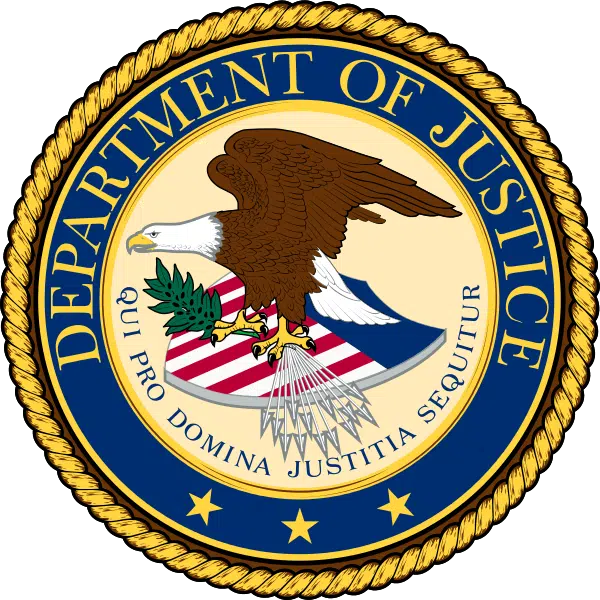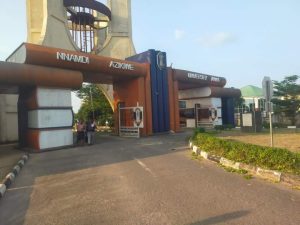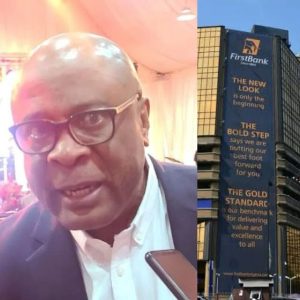Nigerian Man Sentenced to Two Years Imprisonment for $1 Million Health Care Fraud Scheme in the US
A storm of legal and moral implications surrounds the recent conviction of a Nigerian national, Henry Ezeonyido, who has been sentenced to 27 months in a United States federal prison for masterminding a complex and calculated healthcare fraud that siphoned over $1 million from major health insurance providers. This case, prosecuted in the U.S. District Court in Boston, not only spotlights international healthcare exploitation but also raises serious concerns about identity theft, transnational fraud networks, and ethical accountability within immigrant communities abroad.
At just 37 years old, Ezeonyido—who had lived in Taunton, a town in the Greater Boston area—pleaded guilty in February 2025 to one count of conspiracy to commit health care fraud and six counts of health care fraud. His arrest and conviction mark the culmination of an elaborate investigation that spanned nearly five years and involved multiple federal agencies, including the FBI, U.S. Postal Inspection Service, and the Insurance Fraud Bureau of Massachusetts.
The U.S. Department of Justice (DOJ) confirmed Ezeonyido’s sentencing on Wednesday, May 21, 2025, through an official press release. According to U.S. District Court Judge Leo T. Sorokin, in addition to serving time in prison, Ezeonyido will undergo three years of supervised release and must repay $655,313 in restitution to the defrauded insurers. He is also ordered to forfeit $396,998 in criminal proceeds, funds which he illegally acquired through the fraudulent scheme.
From October 2019 through February 2022, Ezeonyido carefully orchestrated a multi-layered scam that revolved around falsified health insurance claims. According to court documents, Ezeonyido fabricated documentation to falsely portray expensive emergency medical treatments allegedly received while abroad. These fabricated incidents often included dramatic and severe injuries such as gunshot wounds, stabbings, and hit-and-run car accidents. The claims were submitted on behalf of both willing and unwitting participants, many of whom were either co-conspirators or victims of identity misuse.
YOU MAY READ
Nigerian man sentenced to 2 years in U.S prison for $300,000 romance fraud scheme
The scheme targeted at least five health insurance companies and involved over a million dollars in false claims. A meticulous web of deception underpinned the operation: counterfeit medical records, doctored bank transaction logs, and even fake police reports were presented as evidence to support these bogus claims. Ezeonyido and his associates, through this method, convinced insurers that claimants had received emergency treatments in foreign countries and paid out-of-pocket for the services.
However, GPS data, travel records, and digital footprints later revealed that most of the supposed claimants were, in fact, within U.S. borders at the time of the alleged treatments.
Ezeonyido did not act alone. Federal prosecutors also charged Brendon Ashe, Aqiyla Atherton, Darline Cobbler, and Ariel Lambert—all of whom eventually pleaded guilty and were sentenced to probation due to their relatively minor roles and cooperation with investigators. Atherton, in particular, functioned as an intermediary, recruiting others into the scheme in exchange for a share of the illegally obtained payouts.
Some participants were knowingly complicit, willingly handing over their personal insurance details and accepting a portion of the proceeds once claims were processed and paid. Others, however, were misled or outright defrauded, unaware that their medical insurance accounts were being used as instruments of crime.
In statements made during court proceedings, it was revealed that Ezeonyido kept the lion’s share of the ill-gotten gains. Investigators tracked the funds through various accounts, eventually confirming that he had retained nearly $400,000 for his personal use. These funds were used to purchase luxury items, fund travels, and sustain an opulent lifestyle that stood in stark contrast to the modest income he reported.
The fraudulent claims submitted by Ezeonyido bore a striking resemblance to one another—a clue that ultimately led to the unraveling of the operation. Authorities noted that in many instances, identical injuries, the same foreign hospitals, and similar time frames were cited across multiple claims. Some of the “traumatic events” were suspiciously dramatic, involving gang shootings, vehicle pileups, or terrorist attacks, all occurring in regions where the claimants had no documented presence.
When health insurance companies began to detect patterns in these reports, they initiated internal audits and escalated the matter to federal authorities. The subsequent investigation revealed how Ezeonyido had manufactured most of the documentation used to secure reimbursement. In one case, a supposed police report from Ghana described a man being shot in the leg during a market robbery; another claim detailed a woman being hit by a car in South Africa and requiring emergency surgery. None of these incidents ever happened, and in fact, most claimants were busy living their routine lives in the U.S. during the stated time frames.
Ezeonyido’s conviction has sent shockwaves through both the immigrant and medical communities in Massachusetts. For one, the healthcare fraud unit at the DOJ has reiterated its commitment to rooting out exploitation in the U.S. healthcare system, regardless of the national origin of the perpetrators.
“Health care fraud affects every American. It drives up insurance premiums and diverts critical resources away from people who truly need care,” said U.S. Attorney Leah B. Foley during a press briefing. “This sentence sends a clear message: anyone who defrauds the system will be held accountable.”
Meanwhile, in Nigeria, the case has sparked significant public interest and debate. Many view it as another chapter in a growing narrative that unfairly stereotypes Nigerians abroad. Others argue that Ezeonyido’s actions have only further complicated the global perception of Nigerian professionals and expatriates who already face rigorous scrutiny and immigration hurdles.
Back in the U.S., insurance companies involved in the case have begun reviewing old claims for similar patterns, hinting at the possibility that Ezeonyido’s scheme could be just one among many. Investigators have also opened channels to trace whether some of the proceeds were laundered or invested in properties abroad, particularly in Nigeria and Ghana.
Among the most troubling aspects of the case is the involvement of individuals whose identities were misused. In several statements collected by investigators, unsuspecting friends and acquaintances of Ezeonyido reported that he had once offered to help them “maximize” their insurance benefits. Many believed it was a legal loophole or a workaround for getting healthcare coverage while visiting family in Africa. Some even believed they were participating in a government rebate program for diaspora Nigerians.
One such individual, who asked to be identified only as “Joy,” said she was horrified when federal agents knocked on her door asking about a medical claim for a surgery she supposedly had in Accra. “I’ve never been to Ghana,” she said. “I thought Henry was just trying to help me understand my insurance coverage.”
Others, like Brendon Ashe and Ariel Lambert, were fully aware of the fraud but minimized their roles during the trial. “He [Ezeonyido] was the brain behind it,” said Ashe. “We were all just trying to make ends meet, but it got out of hand.”
Legal experts are calling for stricter oversight and coordination between insurance companies and federal agencies to detect fraudulent claims earlier. The case also poses significant diplomatic ramifications. It revives longstanding tensions about visa fraud, money laundering, and the activities of criminal syndicates operating across borders. The Nigerian Embassy in Washington, D.C., has not issued a formal statement, but sources indicate quiet engagement with U.S. authorities regarding further investigations.
Back home in Nigeria, conversations have erupted around the failure of the local economic system to retain skilled individuals. A growing number of professionals have migrated to countries like the U.S., U.K., and Canada in search of better opportunities. Critics argue that poor governance and lack of job opportunities contribute to crimes like Ezeonyido’s, as some Nigerians abroad resort to fraud to sustain themselves.
The sentencing of Henry Ezeonyido marks a sobering moment for the Nigerian diaspora in America. It is a cautionary tale not just about greed but about how seemingly intelligent individuals can exploit systems meant to protect the most vulnerable.
Ezeonyido’s journey from Taunton to a federal penitentiary serves as a warning that the long arm of the law eventually catches up with perpetrators, regardless of their nationality. While the case may be legally concluded, its ripples will continue to affect policy discussions, community trust, and international cooperation on financial crimes.
As the world continues to grapple with the implications of transnational fraud, one thing is certain: the healthcare systems—both public and private—must remain vigilant. But beyond policy and procedure, this story is a reminder of the ethical decay that accompanies unchecked ambition, and the price one pays when truth is traded for personal gain.
With Henry Ezeonyido now behind bars and restitution proceedings underway, federal prosecutors hope this case will serve as a precedent for future deterrents. For the Nigerian community in the U.S., it is a moment of reflection. For the global insurance industry, a wake-up call. And for all who consider taking shortcuts through the corridors of fraud, a stark lesson in the consequences of deception.





